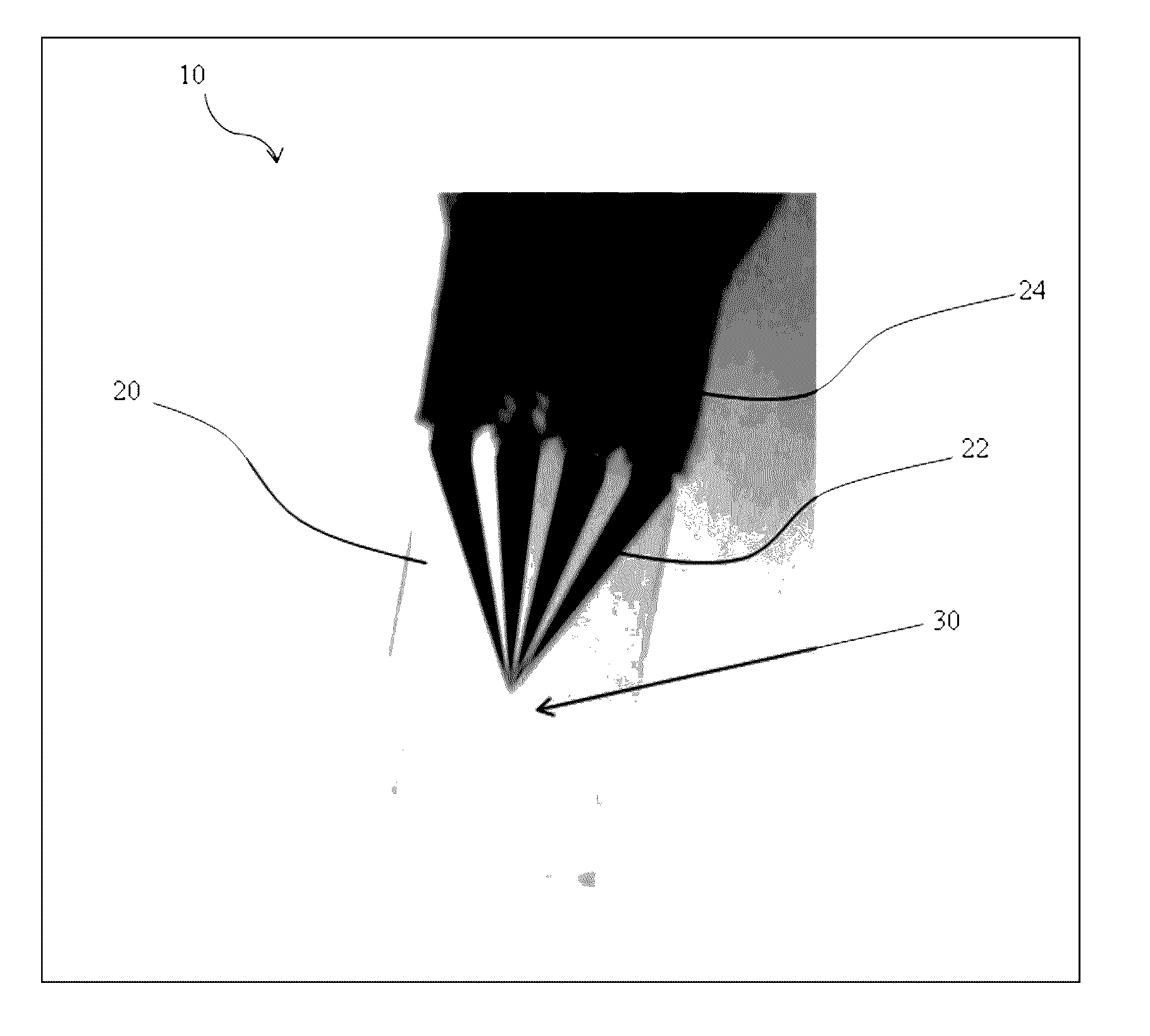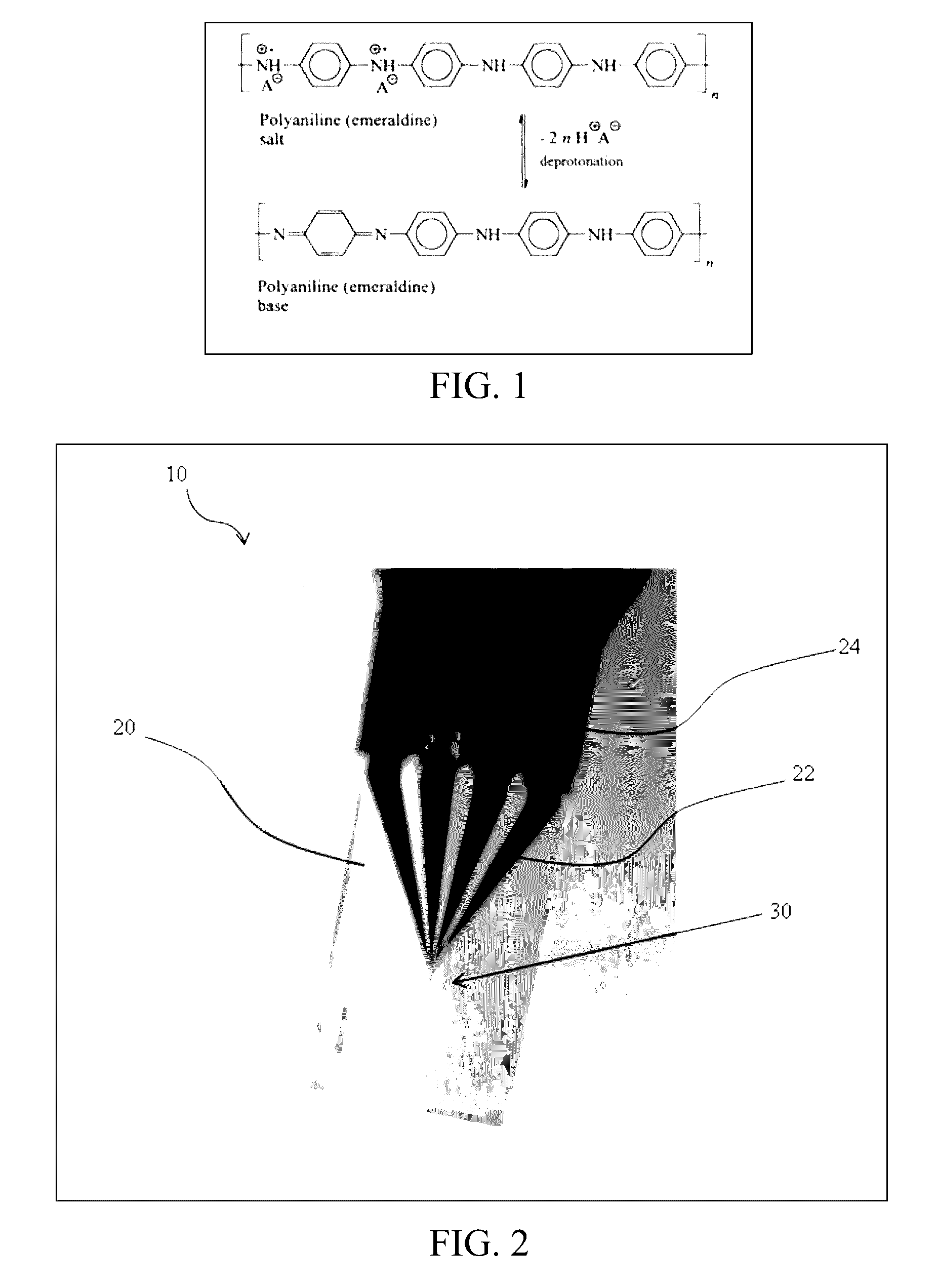Low concentration ammonia nanosensor
a nanosensor and ammonia technology, applied in the field of gaseous analyte sensing sensors and methods, can solve the problems of low absorption capacity, limited sensitivity of gas sensors based on bare nanomaterials, such as pristine cnts,
- Summary
- Abstract
- Description
- Claims
- Application Information
AI Technical Summary
Benefits of technology
Problems solved by technology
Method used
Image
Examples
Embodiment Construction
,” one will understand how the features of the various embodiments disclosed herein provide a number of advantages over the current state of the art. These advantages may include, without limitation, simplified and efficient methods of fabricating electrochemical gas sensors having good sensing properties, such as high sensitivity, low detection limits, fast response and recovery times, good reproducibility, good selectivity in the detection of gases, and long term stability.
[0014]The present invention provides, in a first aspect, an electrochemical sensor for sensing a gaseous analyte. The sensor includes a substrate which has two or more electrodes disposed thereon, and a carbon nanotube-polyaniline film disposed on the substrate and in contact with at least two electrodes. The carbon nanotube-polyaniline film includes carbon nanotubes coated with a thin layer of polyaniline having a thickness such that electron transport can occur along and / or between the carbon nanotubes.
[0015]T...
PUM
| Property | Measurement | Unit |
|---|---|---|
| thickness | aaaaa | aaaaa |
| thickness | aaaaa | aaaaa |
| diameter | aaaaa | aaaaa |
Abstract
Description
Claims
Application Information
 Login to View More
Login to View More - R&D
- Intellectual Property
- Life Sciences
- Materials
- Tech Scout
- Unparalleled Data Quality
- Higher Quality Content
- 60% Fewer Hallucinations
Browse by: Latest US Patents, China's latest patents, Technical Efficacy Thesaurus, Application Domain, Technology Topic, Popular Technical Reports.
© 2025 PatSnap. All rights reserved.Legal|Privacy policy|Modern Slavery Act Transparency Statement|Sitemap|About US| Contact US: help@patsnap.com



